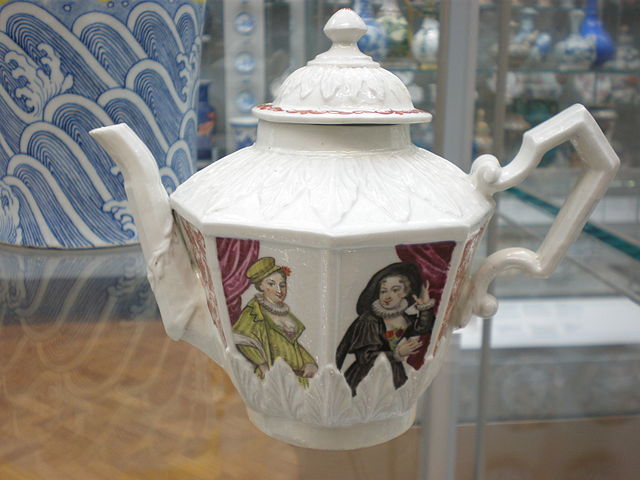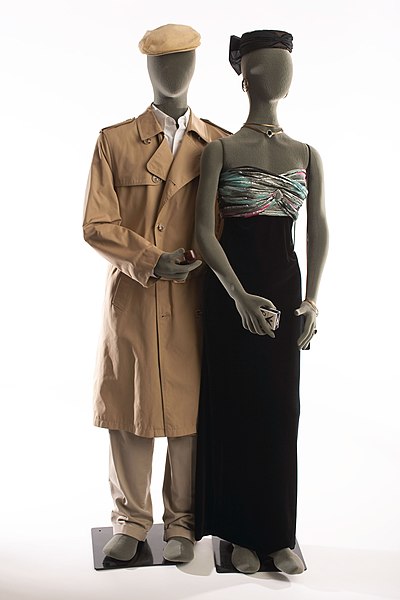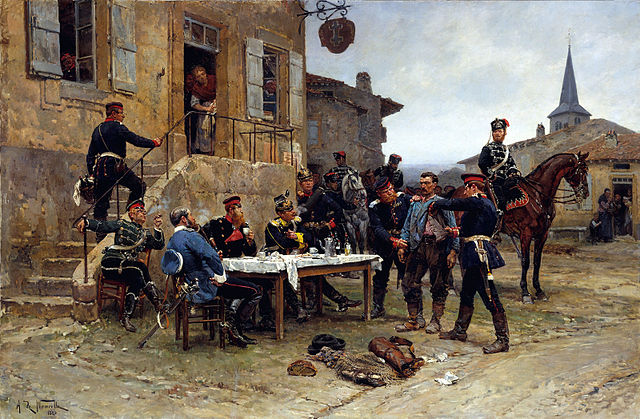Industrial espionage, also known as economic espionage, corporate spying, or corporate espionage, is a form of espionage conducted for commercial purposes instead of purely national security.
Teapot with Actresses, Vezzi porcelain factory, Venice, c. 1725. The Vezzi brothers were involved in a series of incidents of industrial espionage. It was these actions that led to the secret of manufacturing Meissen porcelain becoming widely known.
During testing, automakers commonly disguise upcoming car models with camouflage paint patterns designed to obfuscate the vehicle's lines. Padded covers or deceptive decals are also often used. This is also to prevent motoring media outlets from spoiling the model before its planned reveal.
The work of a European priest, Father Francois Xavier d'Entrecolles to reveal to Europe the manufacturing methods of Chinese porcelain in 1712, is sometimes considered an early case of industrial espionage.
Espionage, spying, or intelligence gathering is the act of obtaining secret or confidential information (intelligence). A person who commits espionage is called an espionage agent or spy. Any individual or spy ring, in the service of a government, company, criminal organization, or independent operation, can commit espionage. The practice is clandestine, as it is by definition unwelcome. In some circumstances, it may be a legal tool of law enforcement and in others, it may be illegal and punishable by law.
Madame Minna Craucher (right), a Finnish socialite and spy, with her chauffeur Boris Wolkowski (left) in 1930s
An intelligence officer's clothing, accessories, and behavior must be as unremarkable as possible—their lives (and others') may depend on it.
Painting of French spy captured during the Franco-Prussian War






